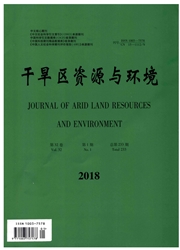

 中文摘要:
中文摘要:
政府机构等相关组织往往利用引导用语来促进公众绿色出行,但这些引导用语是否能起到作用,目前学术界尚缺乏实证研究。文中通过设计2(高/低环境态度)x2(强势/非强势引导用语)实验,对北京市消费者展开问卷调查,对收集的419份有效问卷进行实证分析,以感知重要性、感知严重性为环境态度,探讨在强势和非强势引导用语下消费者的绿色出行意向。研究结果表明:在环境态度较高时,强势引导用语对绿色出行意向促进作用更大;在环境态度较低时,非强势引导用语对绿色出行意向促进作用更大;环境态度对绿色出行意向的促进作用大于引导用语对绿色出行意向的促进作用。研究结论为提升引导用语的使用效果提供了科学决策依据。
 英文摘要:
英文摘要:
Governments and other related organizations often use the guide information to promote consumers green commuting. However, whether these guide information could exert positive effect is still lack of empirical research. In this research, 2 (high / low environmental attitude) x2 (assertive / non assertive guide information) experiment was designed, and a questionnaire survey was conducted among the consumers in Beijing, and 419 valid questionnaires were collected for empirical analysis. Research results show that assertive guide informa- tion could exert greater influence on green commuting intentions, when consumers have higher environmental atti- tudes; non assertive guide information could exert greater influence on green commuting intentions, when consumers have lower environmental attitudes; environmental attitudes play a more important role than the guide information on promoting green commuting intentions. Research findings could be benefit to enhance the effect of the guide information.
 同期刊论文项目
同期刊论文项目
 同项目期刊论文
同项目期刊论文
 期刊信息
期刊信息
